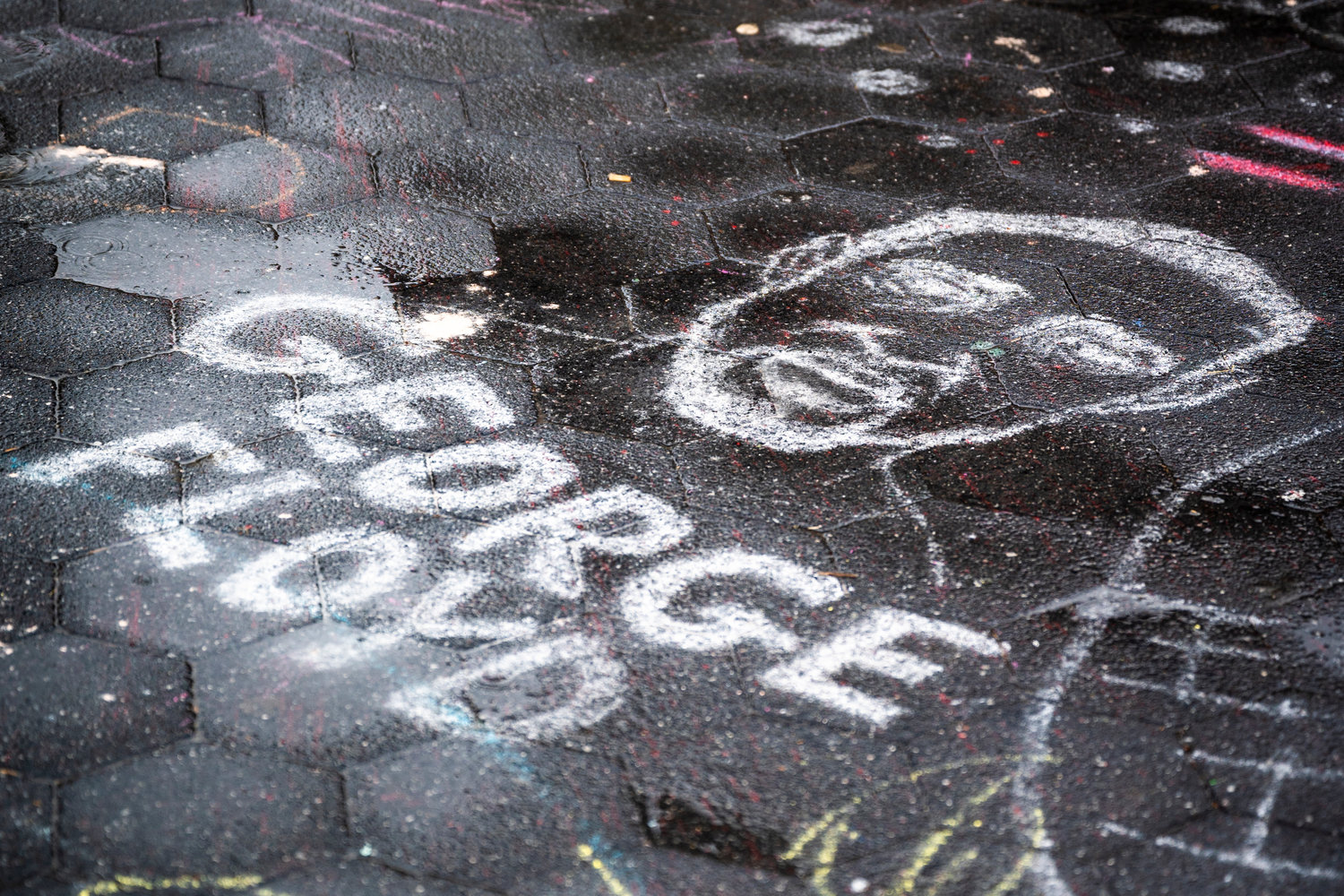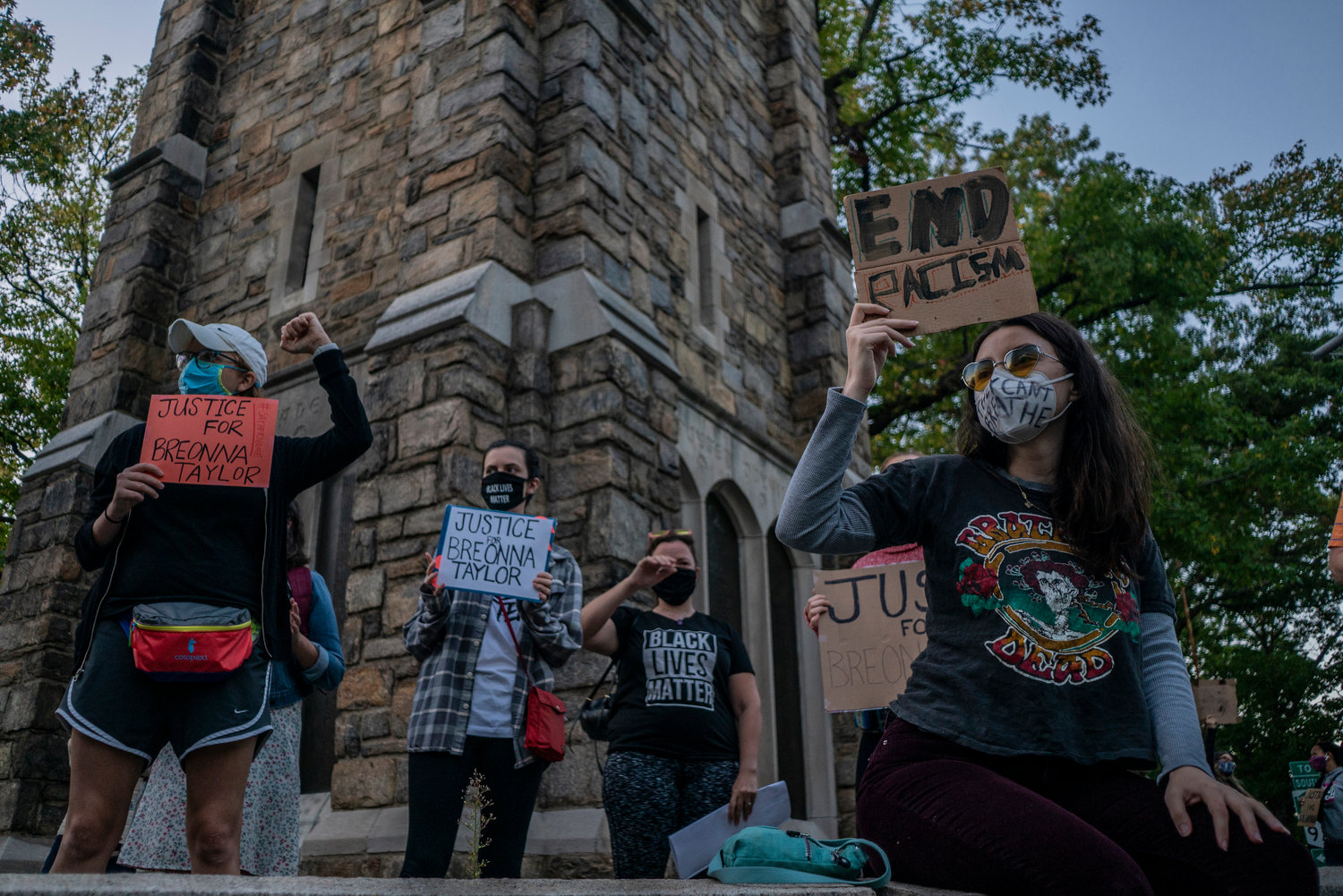Derek Chauvin verdict rare instance of police accountability
Neighbors well beyond Minneapolis seek police reform and racial equality
Derek Chauvin was found guilty in the murder of George Floyd in Minneapolis. The former police officer faced a jury of his peers, yet even in what many saw as an open-and-shut case, there were still some uncertain what would happen until the moment Judge Peter Cahill read the word “guilty” three times.
Not only is such a verdict rare, but so is a police officer facing charges for killing a civilian, period.
Video clearly showed Chauvin, who is white, kneeling on the neck of Floyd, who is Black, for more than nine minutes, capturing the world’s attention last year. It sparked racial justice protests in the midst of the coronavirus pandemic, last summer, calling for changes to the way Black communities are policed.
Chauvin was found guilty of second- and third-degree murder as well as second-degree manslaughter. The former cop likely will spend decades in prison, as just the second-degree murder charge alone carries a presumptive sentence of more than 12 years.
While racial justice advocates see this verdict as a scarce sign of true accountability, it came down amidst several other highly publicized incidents where Black people were shot and killed by the police. That includes the shooting and killing of Daunte Wright in Brooklyn Center — just miles away from the Chauvin trial — and Adam Toledo in Chicago.
Carlton Berkley called the Minnesota jury’s verdict a good verdict.
“Definitely with me being a retired detective, I’m glad he was found guilty of every charge,” said Berkley, who also is running for city council in the June primary. “Hopefully it will send a message to all of the other police agencies that reform is good and police need to take everything into consideration before they do what they do.”
Although Crystal Reyes is relieved by the verdict, she has mixed feelings about how much work it took to get there.
“The sigh of relief for me was like, ‘Yeah, the system did what it needed to do,’” said Reyes, the youth director with Sistas and Brothas United, an organization advocating to remove police officers from schools. “It took a lot of time, it took a lot of people. Like folks in the streets calling on government, calling on the justice system, to do what we all know could’ve been done immediately.”
Still, Reyes added, there’s a much bigger fight ahead to change the system that allowed the police killing of Floyd and other Black people in the first place.
The verdict draws attention to the need for accountability, she said, with hope it will serve as a wake-up call for city officials to recognize the negative impact police officers in schools have on low-income children of color.
This is especially urgent with the recent spate of minors being shot and killed by the police — including Toledo and Ma’Khia Bryant, who police in Ohio killed while she was allegedly lunging at another person with a knife.
“We’ve seen it across the country,” Reyes said. “Four young people dead in the last two weeks. And they’re expected to go to school with police. That doesn’t make sense.”
The city, however, still plans to hire 475 new school safety agents this year. They also plan to move school safety agents from the New York Police Department to the city’s education department. That’s not enough for Reyes because she believes it doesn’t address the fundamental problem of removing police culture from schools.
Others, however, have championed a continued police presence in school, including Irene Estrada, a Democratic district leader who shared those very sentiments in a recent letter to the editor published by The Riverdale Press.
Margaret Della, vice chair of Community Board 8’s racial equity special committee, said the verdict highlights the meaningful work the board volunteers have been engaged in.
“I think it just underscores the relevance of this special committee at this time, in a diverse community, to look at the long-term relevance, perspective (and) urgency of confronting racial equity,” Della said.
CB8 formed this special committee nearly a year ago in response to Floyd’s death and the ensuing national conversation about race. Since its inception, the special committee has worked with other CB8 groups, Della said, to address racial disparities in various parts of life in this corner of the Bronx.
For instance, they worked with the health and hospitals committee to look at racial disparities in the distribution of the coronavirus vaccine. They also worked with the environment and sanitation to identify parts of the district where low-income people of color are disproportionately experiencing pollution impacts, littering and other environmental issues.
“The verdict this week just demonstrates how the entire community has to be engaged over the long term,” Della said. “And that’s truly the only way that we make progress and how (we) mitigate violence. I think we have to continue to confront the context of white supremacy, nativism, extremism and how that intentionally or unintentionally impacts decisions.”
Considering racial equity in decision-making is especially important for CB8’s public safety committee, which regularly speaks to the 50th Precinct about policing.
Although Capt. Emilio Melendez, the precinct commander, declined to comment on the Chauvin trial verdict during the public safety committee’s April meeting, he did speak on a recent police reform plan offered by Mayor Bill de Blasio.
That report proposed making the department more transparent and accountable — including opening some policy changes to public comment and strengthening punitive measures for officers accused of misconduct.
The captain says he’s mostly in favor of the report’s contents, but thinks it paints police in a bad light.
“It’s a necessary step if we want to win the hearts and minds of the people of New York,” Melendez said. “The apprehension that a lot of police officers have is that the reform labels all of us as racist.”
Public safety committee chair Ed Green, himself, worries the report’s proposals could hamper the police’s ability to address quality of life issues. But despite his concerns about police reform overall, Green says the verdict in Chauvin’s trial was undeniably positive.
“I’m hoping that there’s some healing going on after this,” Green said, “and a lot of people can just take a deep breath.”
Want to read this story in print? Click Here









